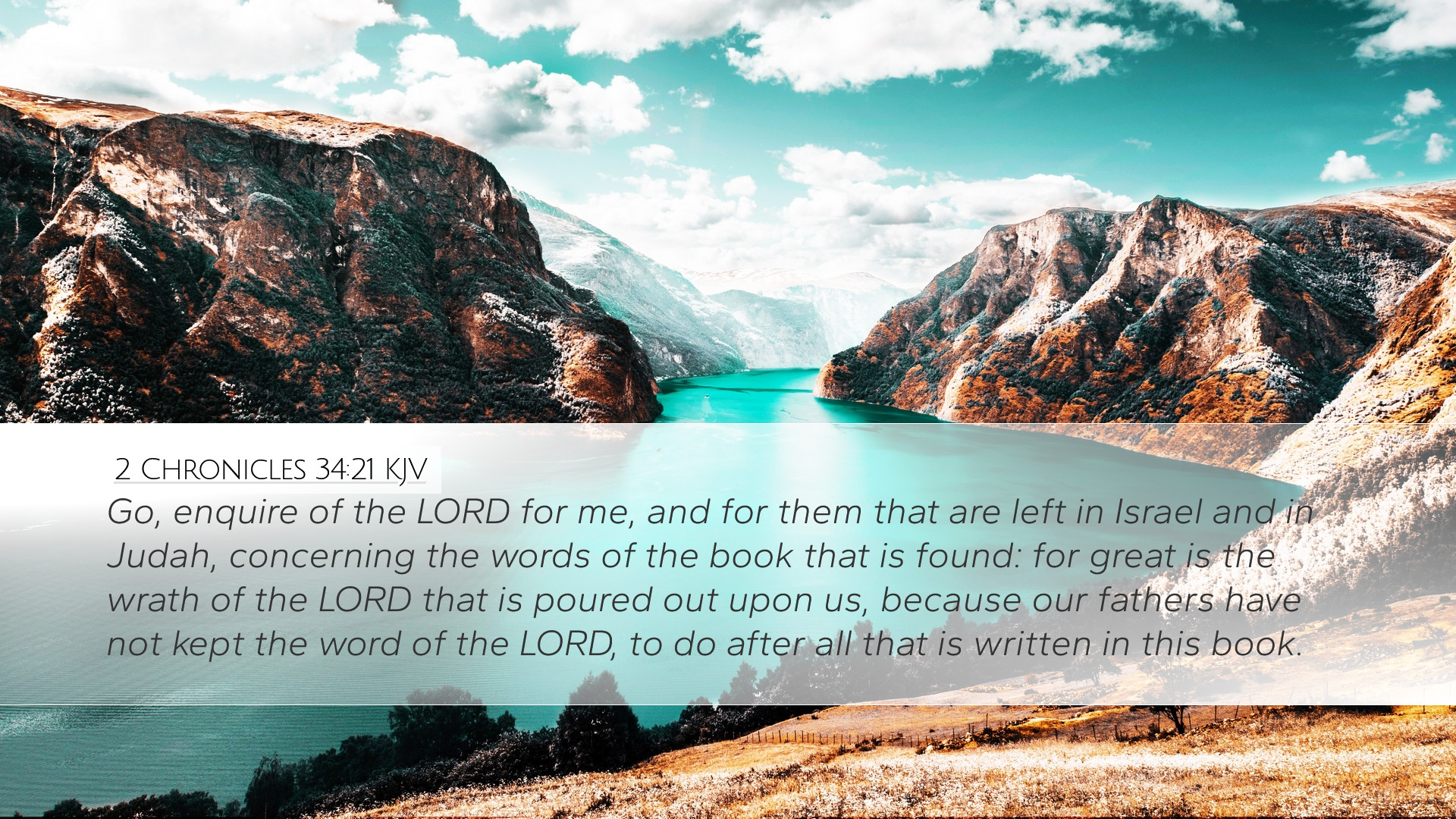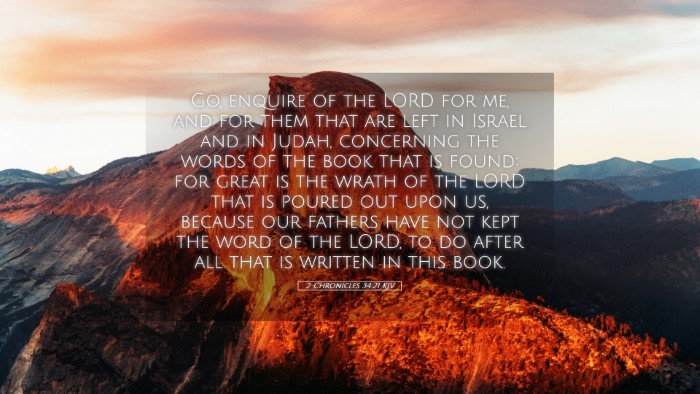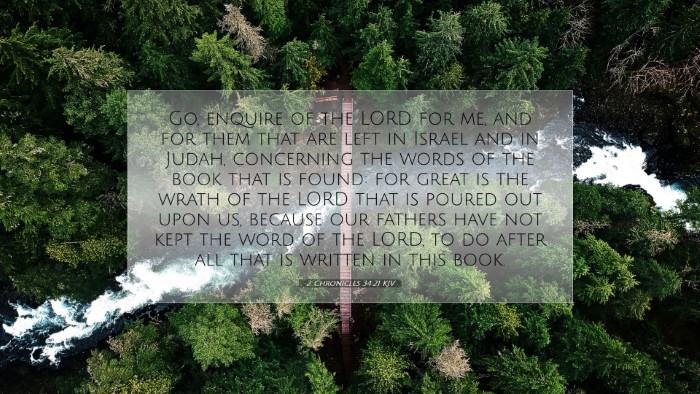Commentary on 2 Chronicles 34:21
2 Chronicles 34:21 states:
“Go, inquire of the Lord for me, and for those who are left in Israel and in Judah, concerning the words of the book that is found; for great is the wrath of the Lord that is poured out on us because our fathers have not kept the word of the Lord, to do according to all that is written in this book.”
Introduction
This verse highlights King Josiah’s profound response to the discovery of the Book of the Law within the temple. It marks a pivotal moment in Jewish history, illustrating Josiah’s commitment to revitalizing true worship and obedience to God amidst widespread apostasy.
Contextual Background
The historical context of 2 Chronicles reflects a period of decline and spiritual neglect in Judah. The temple had fallen into disrepair, and the Scriptures were neglected. The discovery of the Book of the Law was a significant turning point, as it reignited the king's commitment to covenant renewal.
Josiah's Reign
Josiah ascended to the throne at a young age and became known for his religious reforms. The discovery of the Law prompted a deep realization of the national sins and unfaithfulness that provoked God's wrath.
Exegesis of 2 Chronicles 34:21
In this verse, we can observe several key themes:
- Inquiry of the Lord: Josiah’s call to inquire of the Lord emphasizes the necessity of divine guidance in interpreting the implications of the Law.
- Corporate Responsibility: The mention of “those left in Israel and Judah” underscores the community's shared responsibility in acknowledging their failures before God.
- Awareness of Divine Wrath: Josiah’s plea reflects a sober understanding of God's judgment stemming from their disobedience.
Inquiry of the Lord
Albert Barnes comments on the importance of Josiah’s plea for divine inquiry, emphasizing the priority of seeking God’s will when confronted with the weight of Scripture. This reveals a healthy attitude among leaders and individuals alike—recognizing the need for divine assistance in understanding and applying the truths of God’s Word.
Corporate Responsibility
Matthew Henry notes that the acknowledgment of a corporate reality—“for those who are left”—indicates that the blessings and curses of the covenant are not merely personal but communal. It compels both leaders and congregations to reflect on their collective failures and seek restoration.
Awareness of Divine Wrath
Adam Clarke, in his commentary, elaborates on the implications of God’s wrath as described by Josiah. Recognizing that their ancestors had transgressed the Law evokes a genuine sense of urgency; they are not ascribing blame solely to others but are taking collective responsibility, thus prompting genuine repentance and commitment to change.
Theological Implications
This verse invites profound theological reflection regarding God’s nature, human sinfulness, and the means by which believers are restored to right relationship with God.
- The Nature of God: The acknowledgment of God’s wrath in this context reveals His holiness and justice; God’s displeasure is not arbitrary but a response to persistent disobedience.
- Human Sinfulness: It serves as a reminder that the trajectory of one’s life or a nation can lead to profound consequences—warnings observed throughout Scripture.
- The Call to Repentance: Josiah’s actions challenge contemporary readers to examine their lives and communities critically. The pursuit of holiness and fidelity to God’s Word is necessary for restoring right fellowship with Him.
Application for Today
For pastors, theologians, and students, the relevance of 2 Chronicles 34:21 extends beyond its historical setting:
- Encouragement for Leaders: Leaders are encouraged to seek God’s counsel and to foster a culture of inquiry into God’s Word among their congregations.
- Community Reflection: This is a clarion call for believers to engage in communal prayer and reflection, assessing not just individual but collective faithfulness to God.
- Awareness of Divine Judgment: Understanding the seriousness of God’s laws can instill a sense of urgency to live righteously and avoid complacency.
Conclusion
In summary, 2 Chronicles 34:21 not only narrates a historical moment of revival led by King Josiah but also speaks deeply to the spiritual condition of God’s people across generations. It encourages an ongoing inquiry of the Lord to understand His will articulated within Scripture, understand the weight of communal responsibility, and grasp the seriousness of sin that invites God’s righteous judgment. Through this verse, modern-day believers are called to reflect deeply on their walk with God, seeking not only personal renewal but engaging their communities in the pursuit of holiness and faithfulness to God.


